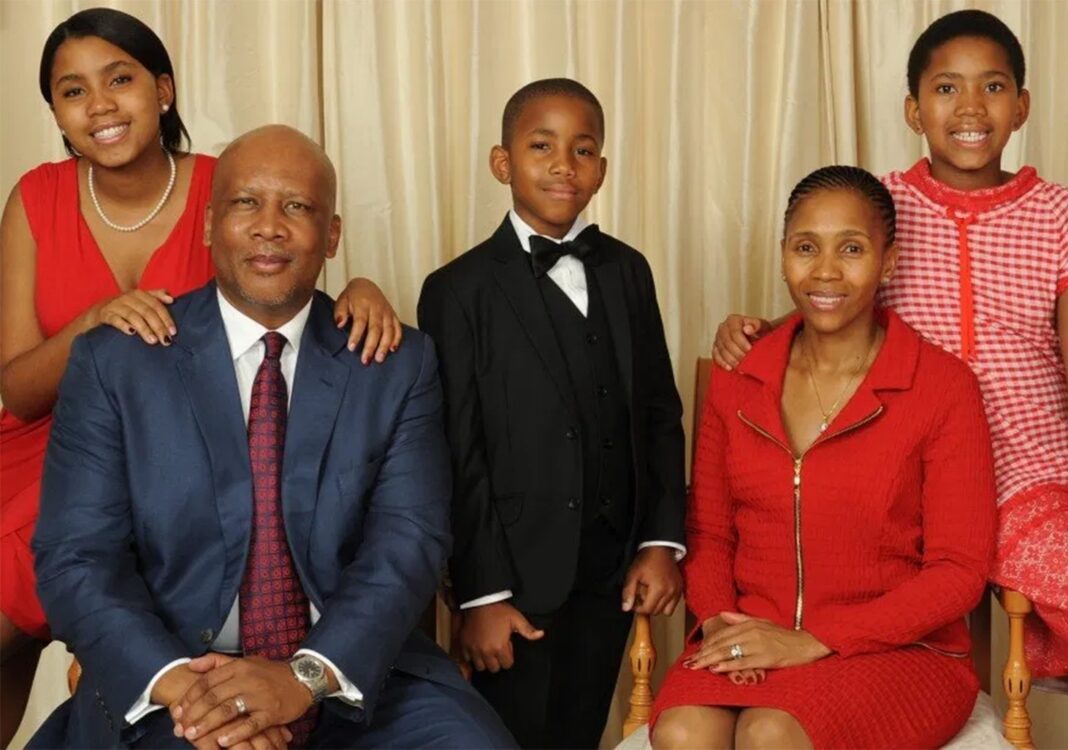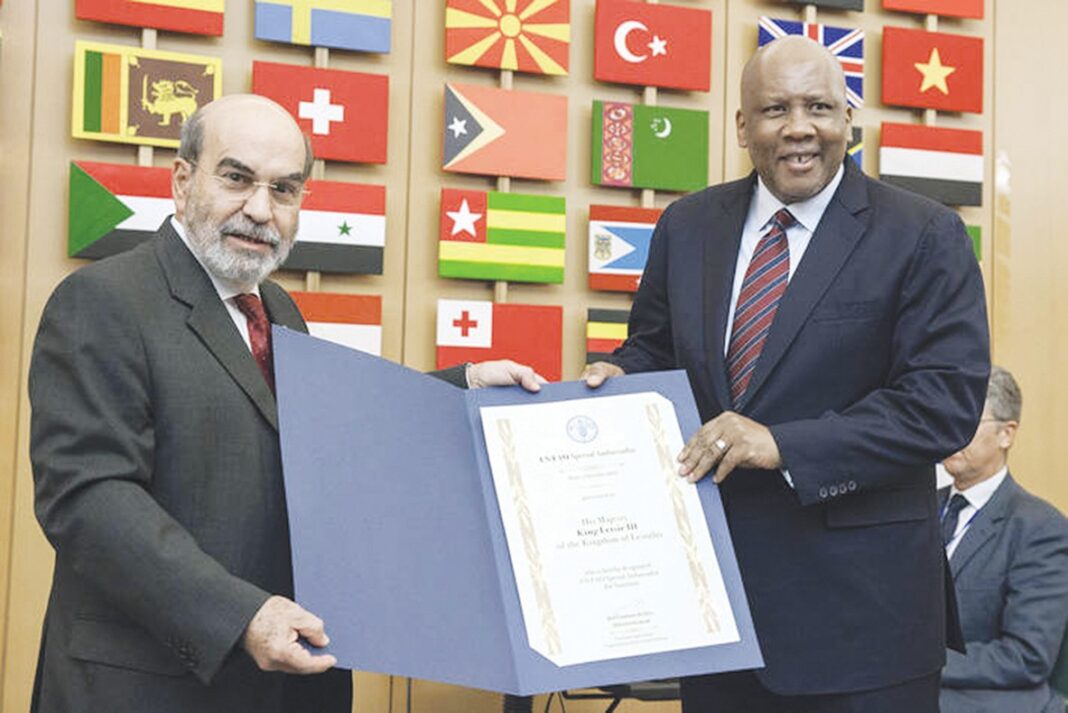King Letsie III is the Chancellor of the University of Lesotho (NUL). Born at Scott Hospital in Morija, just about 40km from Maseru city, on July 17 1963 he was educated first at Iketsetseng Private School after which he went to the United Kingdom where he began studies at Ampleforth College. From there he went on to study at NUL where he graduated with Bachelor of Arts in Law.
He then went on to study at the University of Bristol where he obtained a diploma in English Legal Studie in 1986., then proceeded to Wolfson College in Cambridge where he did development studies in 1989 and then went on to Wye College where he studied Agricultural Economics and completed his education in the same year when he returned to Lesotho.
He was installed as Principal Chief of Matsieng in that year on December 16. He was coronated on December 1997 at the Setsoto Stadium in Maseru where the event was witnessed by Prince Charles of Wales.
He was appointed Food and Agricultural Organisation (FAO) newest Special Ambassador for nutrition by the organisation’s director general Jose Graziano da Silva, He took on the reigns in 1996.
NUL was founded in 1945 in Roma valley and has about 10 000 students who are learning in various faculties. The school’s governing body is the council while the academic body is overseen by the Senate.
As such the King is the head of NUL whose origins date as far back as 1945 when it was called the Catholic University College founded by the Catholic Hierachy of Southern Africa. Its establishment was realised after a decision was taken by the Synod of Catholic bishops in southern Africa in 1938.
It all started at a temporary primary school before it moved to its present site.
Due to his being the Head of the State of Lesotho he is the chancellor of NUL and as such he is the President of the NUL Council.
The duties bestowed on him as Chancellor of NUL under the NUL Order No 19 of 1992, His Majesty’s duties involve presiding over meetings and processions of the university. He has powers to confer degrees, diplomas, certificates and other awards and distinctions of the university.
In the circumstances that warrant it and in consultation with the Council, he may cause investigations to be conducted into any matter relevant to or connected with the welfare of the university and make appropriate recommendations.
He receives reports from the Vice-Chancellor and the Chairman of the Council on any matter regarding the welfare of the university as it may be required by the Chancellor.









